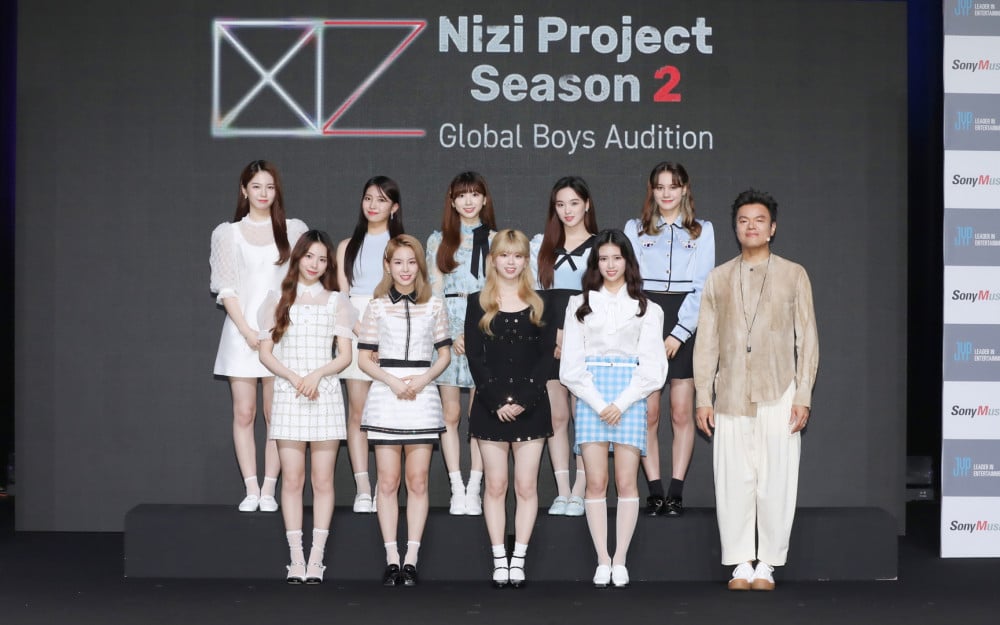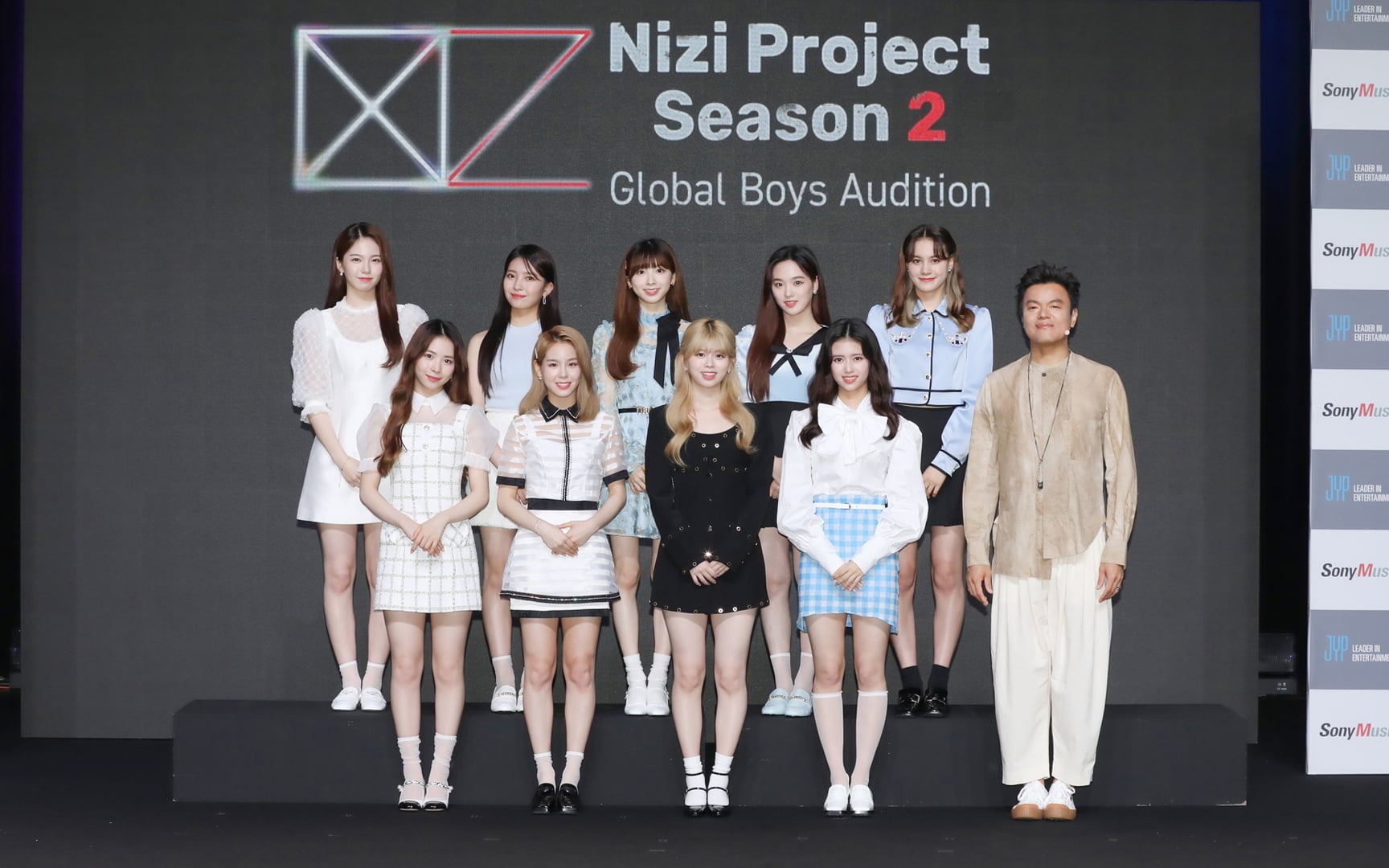
JYP Entertainment's international audition program, 'Nizi Project: Season 2,' has achieved significant success in Japan. In the newest chapter of the 'Nizi Project' series, the show features JYP and Sony Music Entertainment's collaboration to debut a fresh boy group.
In the first season that aired in 2020, the show birthed the sensational girl group NiziU, which has since risen to become a massively influential Japanese girl group.
However, this success has triggered concerns, particularly among figures in the Japanese entertainment industry, including an idol-turned-panelist on a Japanese TV program.
Recently, Tokyo Communications TV's YouTube channel featured remarks from a Japanese panelist, a former idol who voiced apprehensions about the potential talent drain from Japan to Korea through projects like the Nizi Project forming NiziU.
The panelist's identity, masked as 'Panelist A,' suggested that Japan's entertainment industry might be struggling to uncover talent that can rival their Korean counterparts on a global scale, using 'Nizi Project' and NiziU as case studies.
"I believe Japan's accelerated dependence on the Korean entertainment industry may make it nothing more than a strategic outpost for talent sourcing," said Panelist A.
He voiced uncertainty about achieving such success within Japan's current entertainment landscape. He added, "Even if a Japanese child wants to become a global idol or artist, it would be impossible through a Japanese agency. But if they go to a Korean agency, they might be able to achieve it."
He also pointed out the increasingly common occurrence of individuals who, after failing to secure a place in Korean agencies, find themselves rebuffed into pursuing careers in Japanese entertainment agencies.
This commentary has increased focus on the long-standing structural challenges within the Japanese entertainment industry. These hurdles have persisted since the industry's golden years in the early 2000s.
This topic resonates with many, notably due to the international success experienced by Korean idol stars like BTS. Korean netizens weighed in on the discussion, with some expressing their sympathy and agreeing with Panel A’s remarks, while others stated that Japan's idol training system is a mess.
